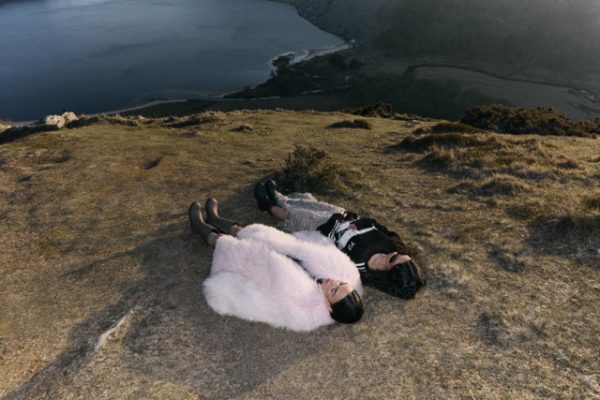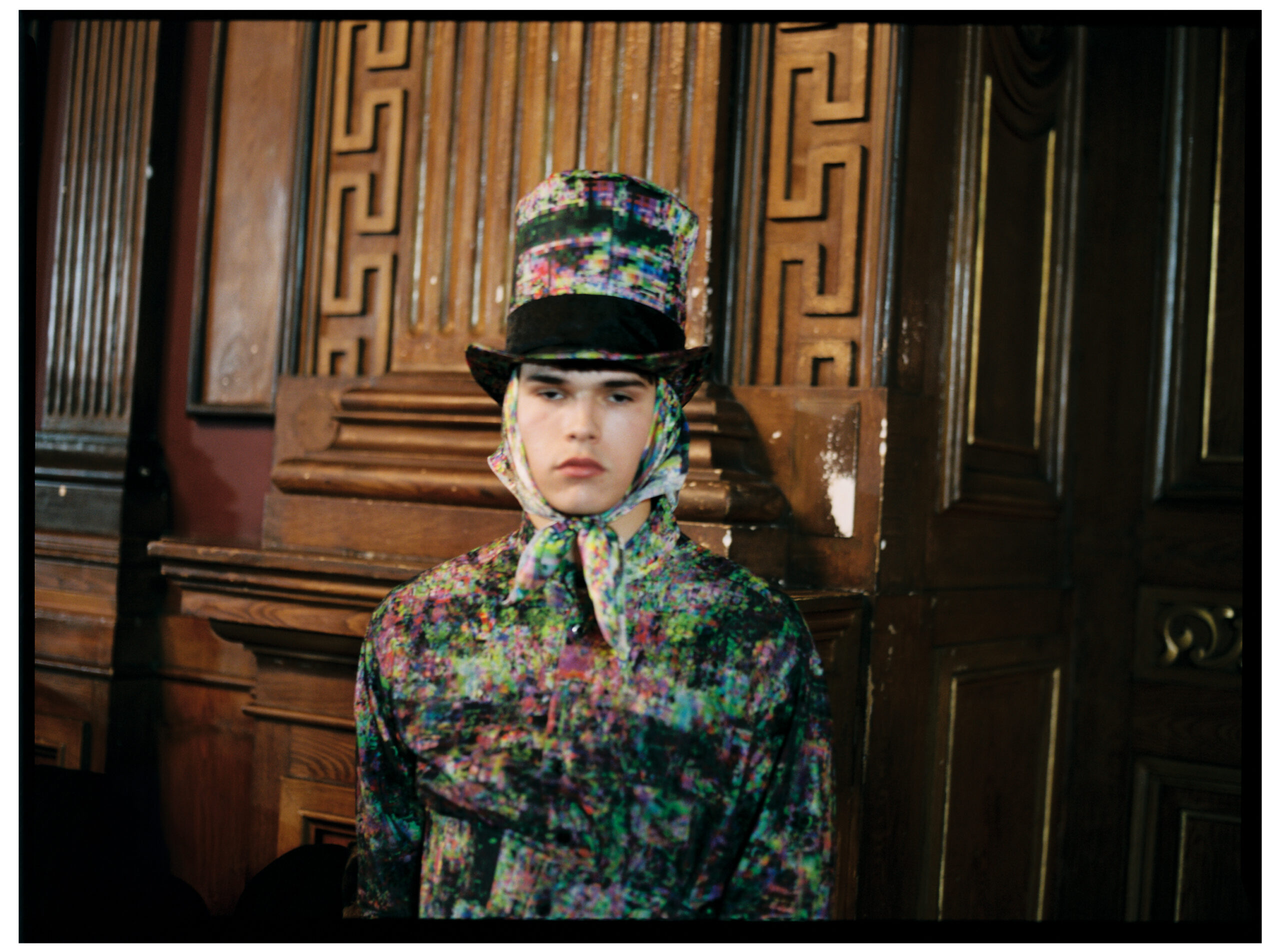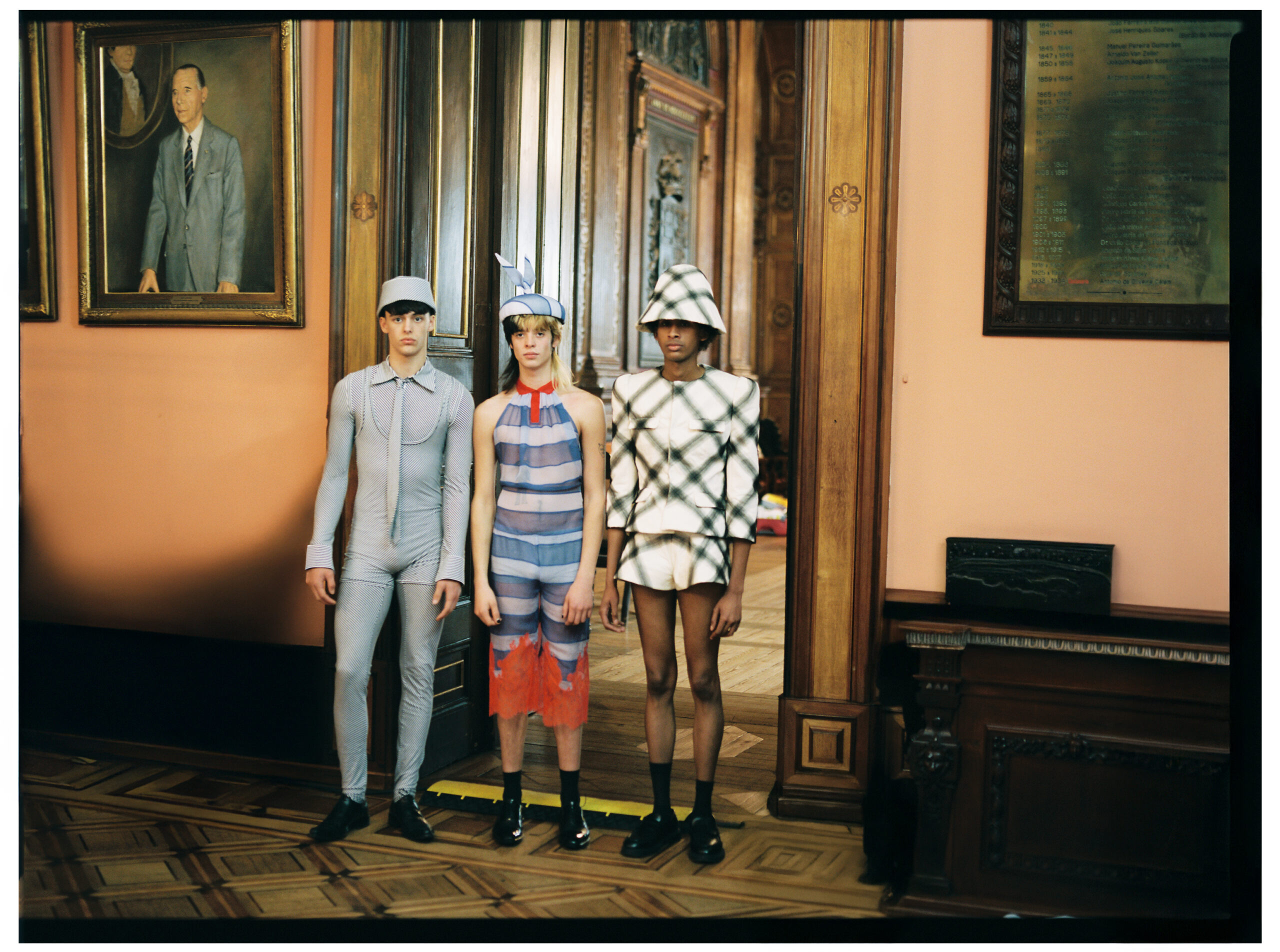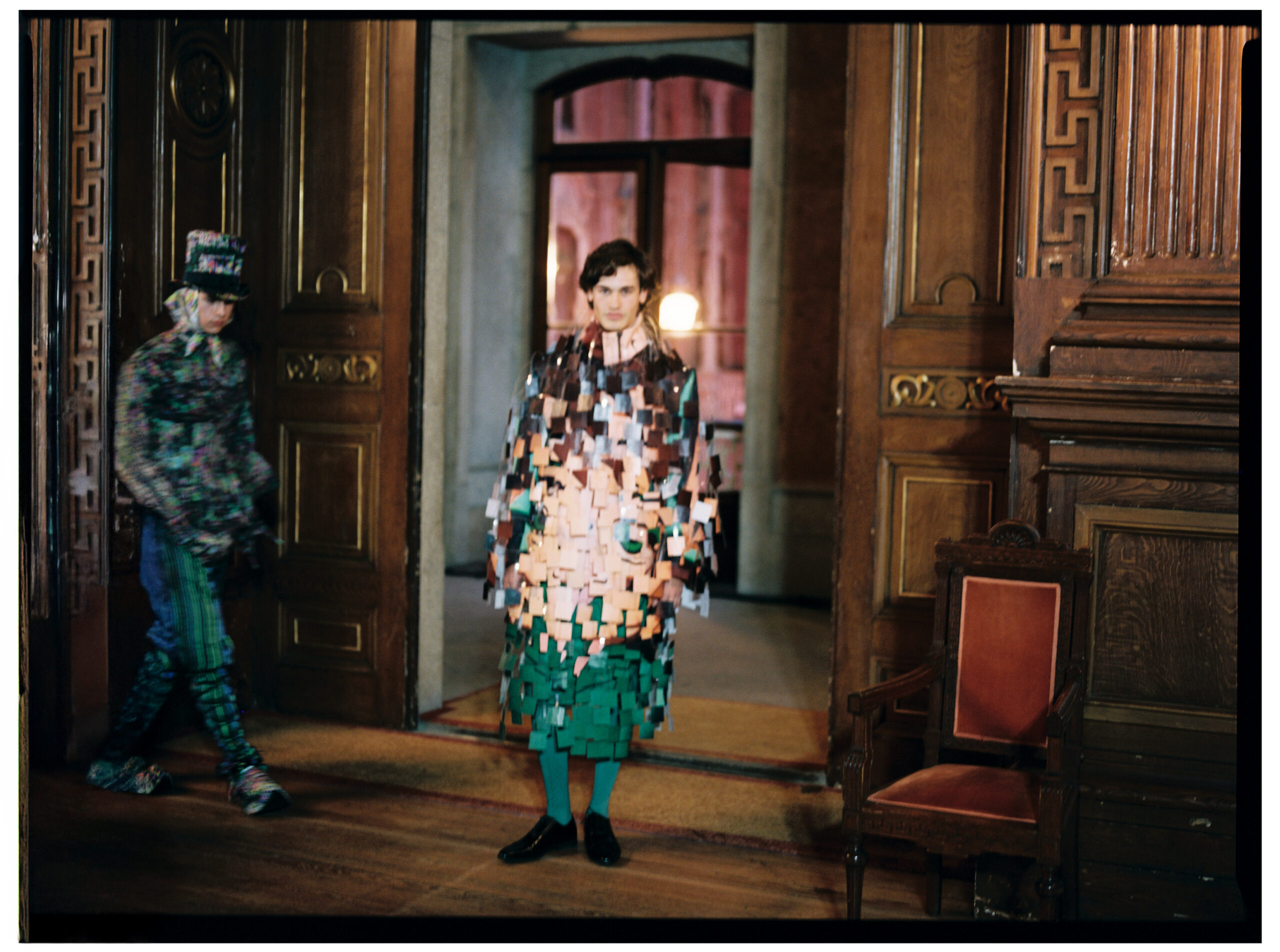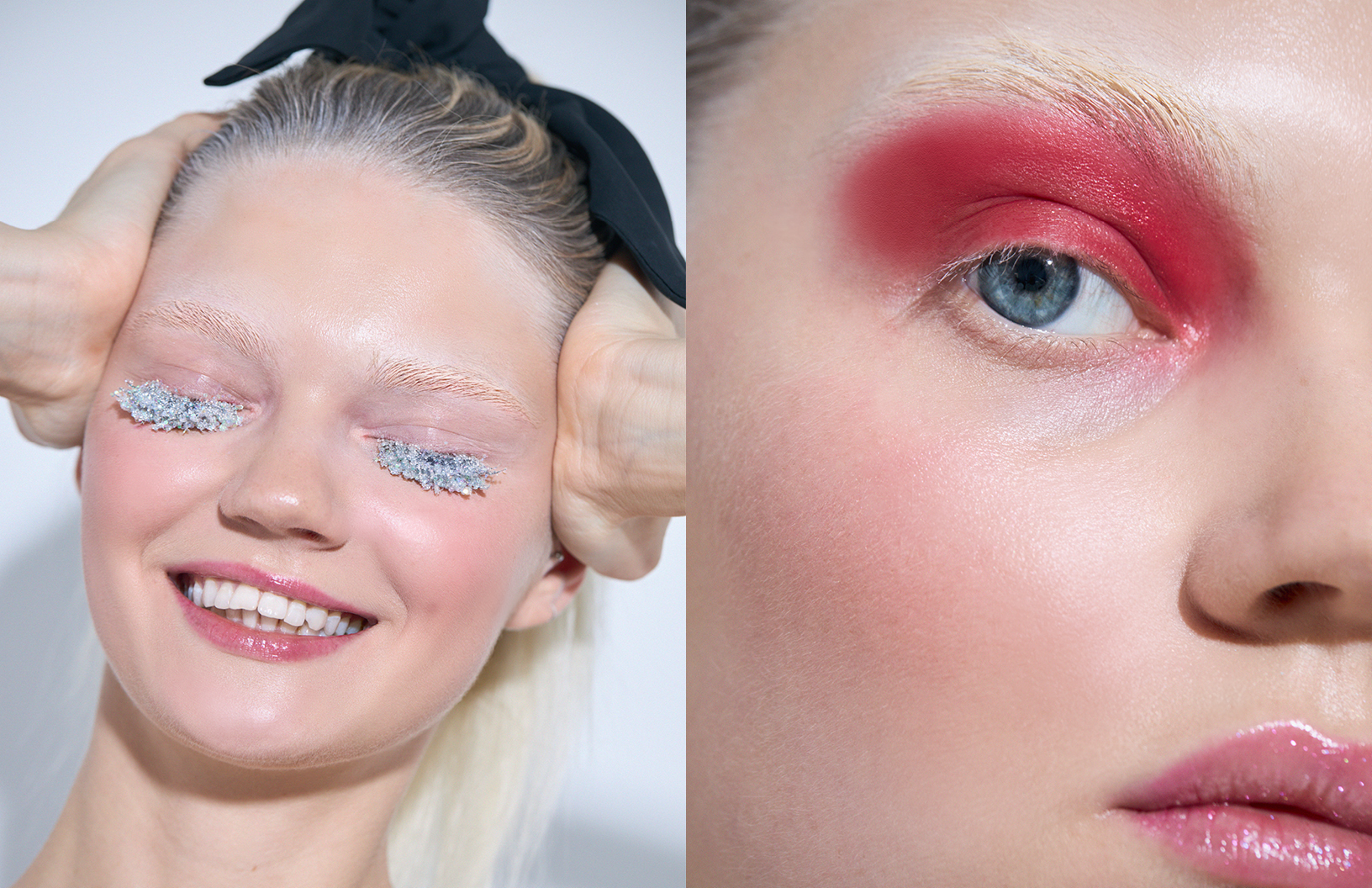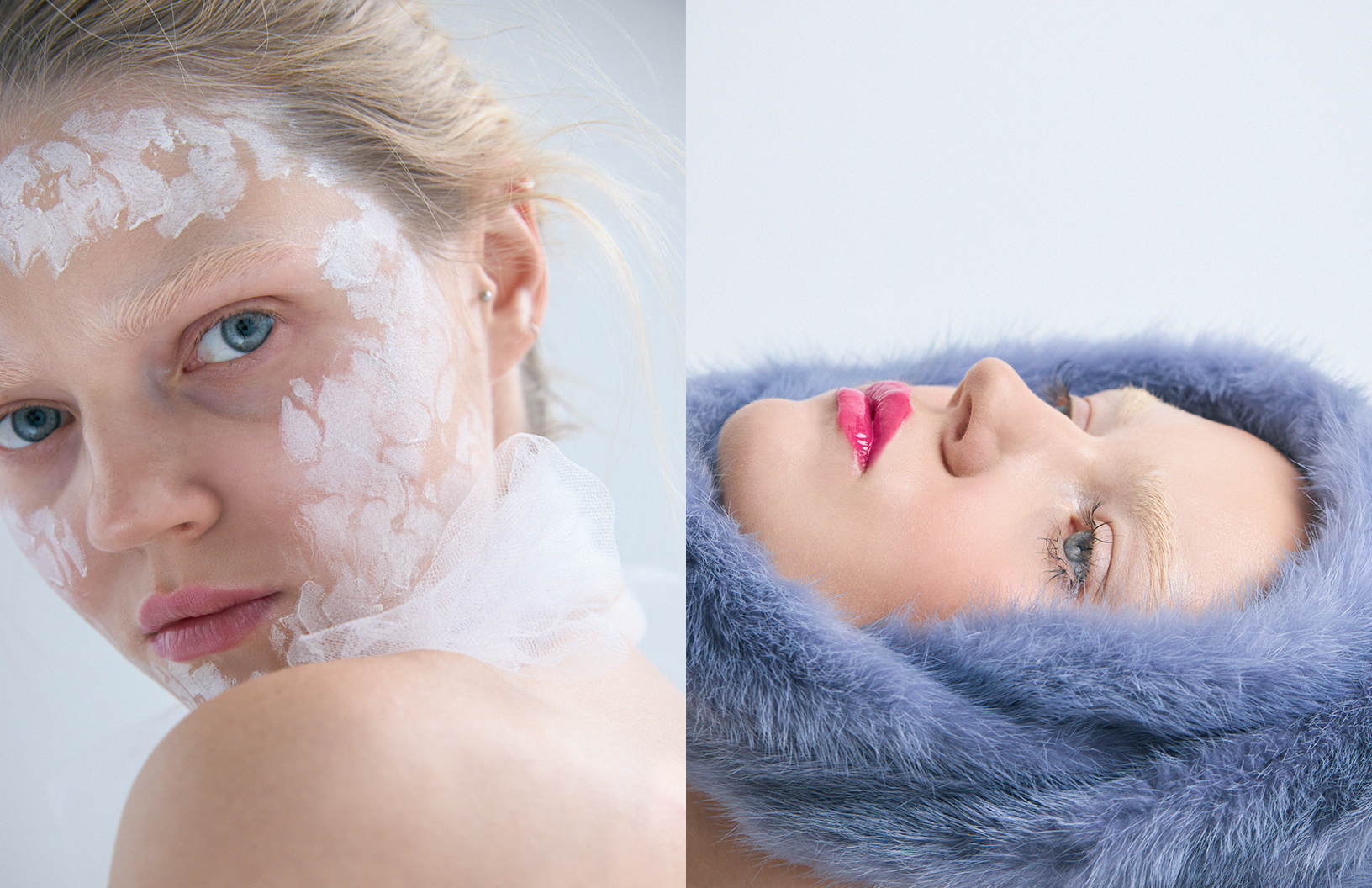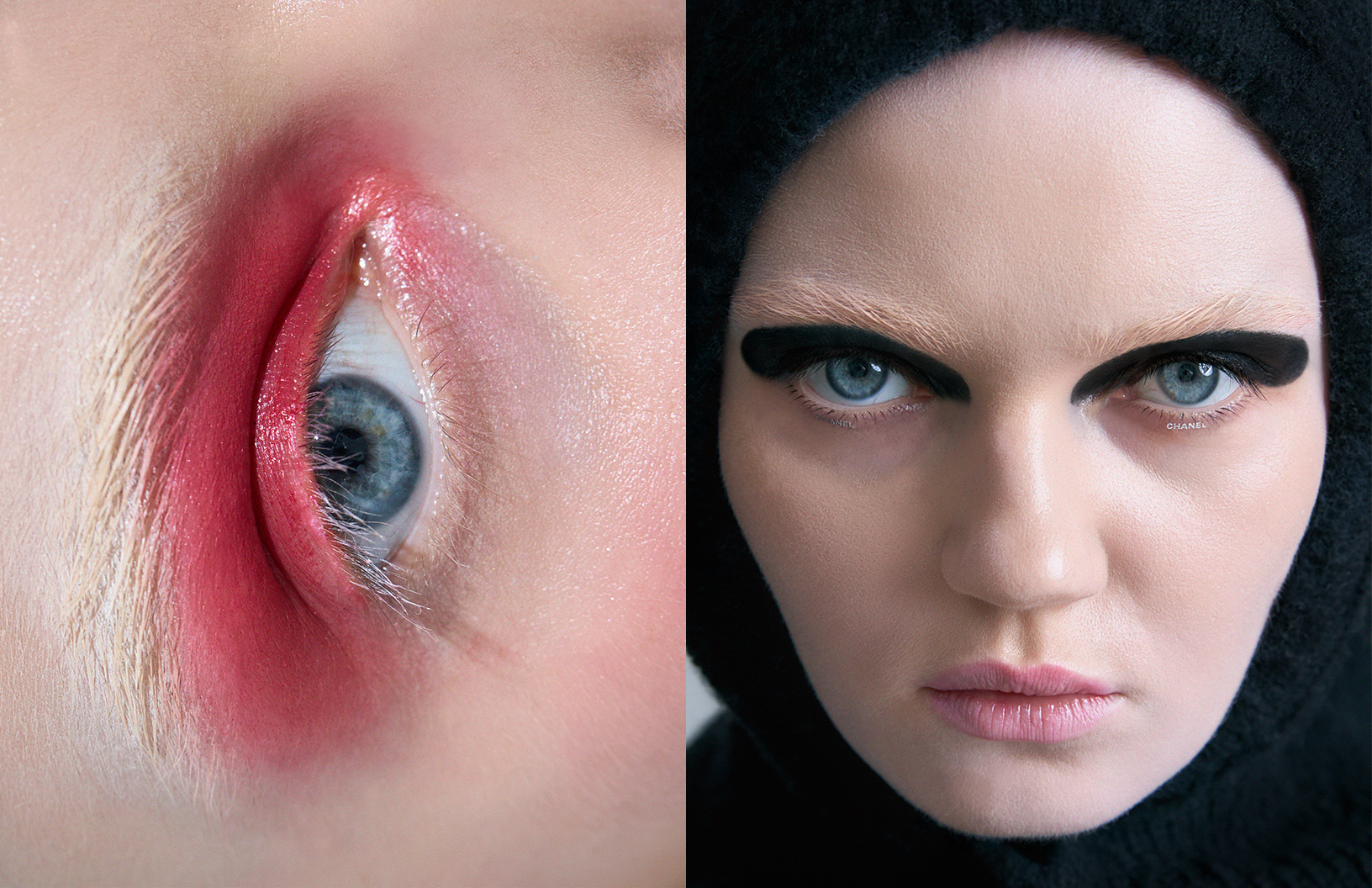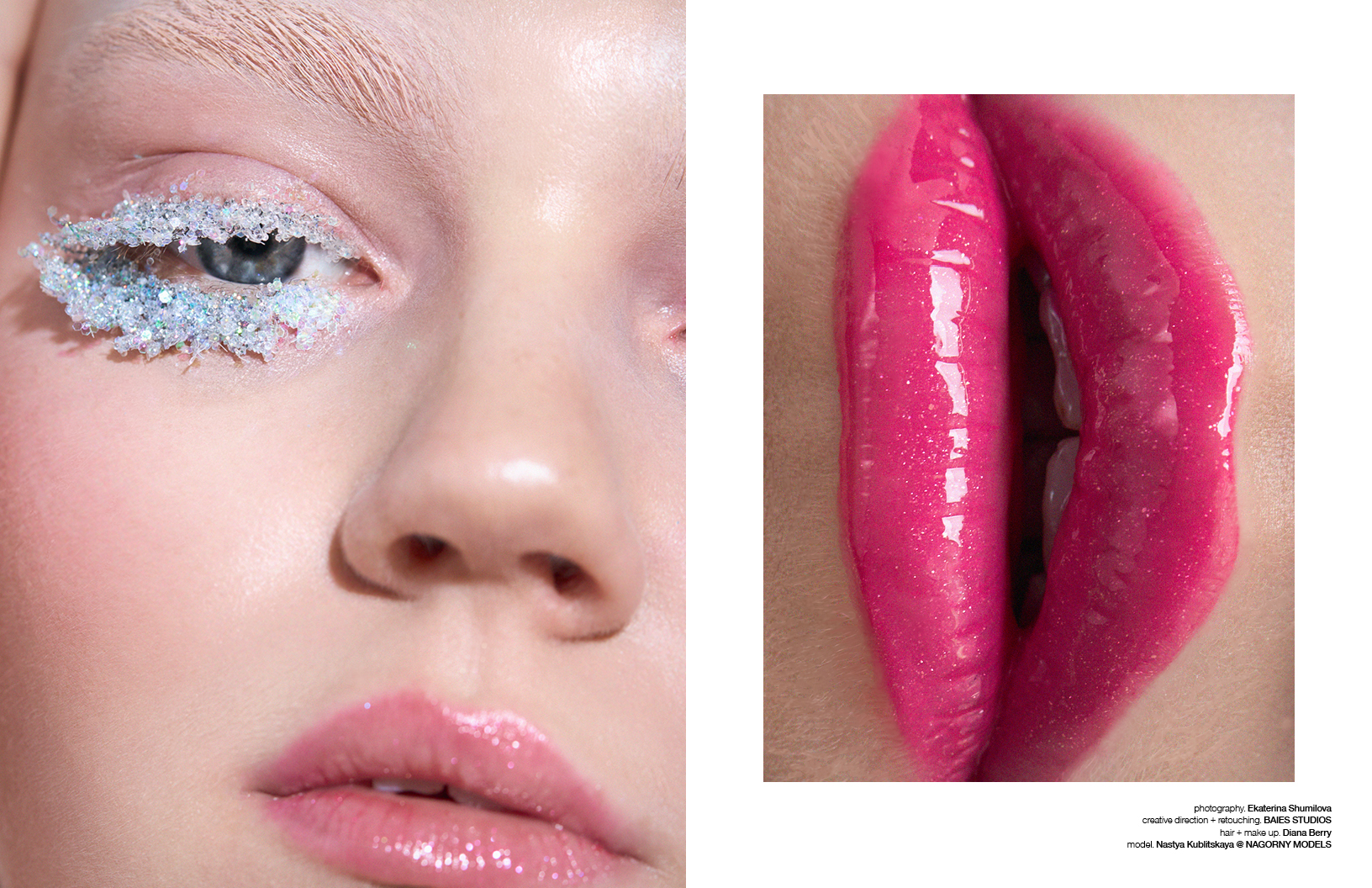In this Schön! online editorial, photographer Gomez de Villaboa and stylist Joel Palmer team up to put the spotlight on Black talent. The duo asked a good bunch of creatives, influencers, and artists of the East London Black and queer community to speak up about their hair and life journey.
“There was a recent case won in February 2020 by Ruby William, a girl who had been repeatedly sent home during the last four years of school for having afro hair. It is a fact that discrimination is still going on even in multicultural cities like London, which in turn lead us to think about how we would feel in predominantly white small cities or towns around the world,” the team behind this shoot said in a statement. “The aim of these images is to inspire and bring positive energy to any generation everywhere.”
“Black hair isn’t something that’s easily taught; it can be complicated and tends to be chaotic and unmanageable,” a quote in their statement also reads. “We learn afro hair texture can be curly, kinky, soft, and coarse — we attached it by wefting, gluing, and plaiting into our scalps. Certain family environments don’t give us insight into Black hair. After our mistakes and through our social communities, we learn to discover and celebrate our Black hair.”

Yvon wears
suit. Daily paper
jewellery. Alan Crocetti & Amanda Dave
opposite
Sacha Lauren Nicette wears
jewellery. Alan Crocetti
Sacha
“Growing up in a small town predominantly white called Devon was a struggle, My hair wasn’t very accepted. I lost so much confidence in myself. Over the last five years, I have learnt to love my afro hair and be proud. I’ve realised it’s a big part of my personality.”

Josh Caffe wears
jacket. Luis de javier
shirt. Model’s own
earring. Alan Crocetti
opposite
Yvon wears
suit. Daily paper
jewellery. Alan Crocetti & Amanda Dave
Josh Caffe
“This is our natural kinky hair, and it doesn’t have to be relaxed and with completely different textured to be accepted as a Black person.”
Ken
“I do love my waves. Whenever I am got to cut my hair short, I look forward haven my waves done and put my durag on, getting into my flow…”
Aaron Porter
“Growing up in a pretty whitewashed town I remember wishing I could style my hair the same way the white kids did but it only took a little encouragement from my mum to do my own thing – [i.e. finding] a more suitable style for my hair type that no one else could do. I found huge power in that! I can be treated in such different ways depending on how I style my hair. If I wear a durag or have a style that could be described more ‘Black,’ I can feel at times people can become more uncomfortable around me, almost more threatened for example.”

Yvon
“When I was a kid, I would be so embarrassed to have my afro hair out. I would not go to school if I wouldn’t have had my hair back done on the weekend.”

Busola Peters wears
jewellery. Amanda Dave
opposite
Busola Peters wears
jacket. XUMU
trousers. DB BEREDEN
jewellery. Amanda Dave
Busola Peters
“Locks are an amazing homage to Afro Caribbean culture. They are a statement of power and perseverance. Many people that have suffered from the struggle of systematic oppression have used them as a political standing point, and I live for it.”

Veronique wears
jumper. Nike
jewellery. Amanda Dave
opposite
Josh Caffe wears
jacket. Luis de javier
shirt. Model’s own
earring. Alan Crocetti
Veronique
“I’ve been very self-conscious about my hair all my life but when I moved to London a group of girls in year nine gave me a positive pep talk about my hair and I’ve been experimenting ever since.”
Alex Thomas
“When I was a little boy my dad used to cut my hair, I always made me feel so well kept, pristine and proud the minute he was finished. These notions have always stayed with me, so I adore having my hair cut to this day. Some may say it’s an obsession. I’ve attempted different Afro styles but I like it sharp, quick, and witty… like me.”

Theo Zero wears
dress. Narcissistic
opposite
Portia Ferrari wears
coat. PLT PVC
top. New Girl Order
necklace. Hanger Inc
Theo Zero
“When I was 18, I shaved my long hair again thinking that it was how I had to be to fit the heterosexual-masc ‘by the book’ look. I learnt to do waves with my sister since I was a kid.”
Portia Ferrari
“My hair has brought me joy, pain, and pride. My hair has always illustrated phases of my life and within that the expression of my growth, of my spirit. My hair signals to me what I’m in need of or what I need to let go of. I have quite a spiritual relationship with my hair and me. Nowadays it’s just like me: Wild and free.”

Portia Ferrari wears
coat. PLT PVC
top. New Girl Order
necklace. Hanger Inc
opposite
Busola Peters wears
jewellery. Amanda Dave
Georgia Palmer
“When I was growing up, I didn’t understand how to wear my curls. I would always straighten my hair out and try and fit in with the other girls. Moving to London and seeing its culture and expression, I was inspired to learn the language of my hair and now I feel so empowered with my Afro! Cut your hair, cream your hair and enjoy it, because it’s beautiful.”
This Schön! online exclusive has been produced by
photography + post-production. Gomez de Villaboa
fashion. Joel Palmer
artists. Aaron Porter, Busola Peters, Portia Ferrari, Veronica Jacobs, Theo Zero, Yvon C, Josh Caffe, Sacha Lauren Nicette + Ken
models. Georgia Palmer @ IMG MODELS + Alex Thomas @ firstmodels
photography assistant. Morgana Andrade
post-production. Mathieu Cadelo
casting. Majorscene


Schön! Magazine is now available in print at Amazon,
as ebook download + on any mobile device













































































